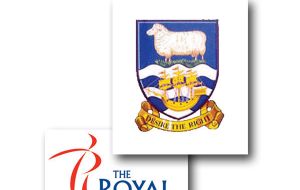MercoPress. South Atlantic News Agency
Falkland Islands Government's 10 Year at the Royal Show

The Falkland Islands Government is exhibiting at the Royal Show this year, marking the tenth occasion of its attendance at the event at Stoneleigh Park, Warwickshire, from 3-6 July.
Visitors to the colourful Falklands exhibition stand will be able to find out how the Islands have developed since 1982 into a dynamic UK Overseas Territory which is diversifying its rural economy to achieve sustainable development. The stand will feature information and photography highlighting developments in the Islands' agriculture, fisheries and tourism industries. A plasma TV screen will show DVDs and beautiful images of the Falklands. The stand will be located in the International Village and will be manned by Falkland Islands Government UK Representative Sukey Cameron MBE and colleagues from the Islands. "We are delighted to be exhibiting at the Royal Show again this year. The agricultural sector in the Falkland Islands has seen significant progress over the past ten years, and the new Islands Plan 2008-2012 sets out our aims for economic growth through continued diversification in the areas of Organic Certification, the development of our meat industry and the implementation of new sheep farming techniques," said Ms Cameron. The agricultural industry plays a pivotal role in the unique culture of the Falkland Islands and its diversification is key to the continued success of the rural economy. The Department of Agriculture has designed a Ten Year Plan, which complements the Islands Plan, to help develop and support a prosperous and self-reliant agricultural sector that creates opportunities for Falkland Islanders and is highly valued locally and internationally. The Department's short to medium term plans (2008-2012) focus on three main milestones: Organic Certification:The Falkland Islands' remote location, temperate climate and traditional farming methods provide an ideal setting to develop organic produce. To support and enhance the industry's diversification efforts, the Department of Agriculture is embarking on the establishment of an internationally recognised organic certification scheme. Sheep Farming:Sheep farming remains the major form of land use in the Falklands and wool is the main land-based export. The Department of Agriculture is focused on providing advice and technical know-how to enhance existing wool production. Improving the value and amount of wool produced will be achieved through initiatives such as the supply and evaluation of superior genetic material, and increasing lambing rates through improved pasture management. By 2009, it is expected that the average wool fibre diameter of Falklands wool will reach 24.75 micron and that wool income will reach £2.5 million. Meat Industry Development:The development of meat and livestock industry is a key diversification strategy to complement wool production. Commercial meat production started in 2002 and continues to develop, with the Falkland Islands Meat Company reporting a 15% year on year increase in the price of Falklands meat obtained during the 2007/2008 export season. The Department of Agriculture has produced a programme focused on developing livestock production systems that can consistently supply local and export markets. Initiatives are in place to improve the quality and quantity of sheep meat and beef by improving nutrition with better grazing management, improved pasture and the introduction of cost effective winter feed options. By 2010, the industry aims to achieve new income of £150,000 from beef alone. (Faming UK)




Top Comments
Disclaimer & comment rulesCommenting for this story is now closed.
If you have a Facebook account, become a fan and comment on our Facebook Page!